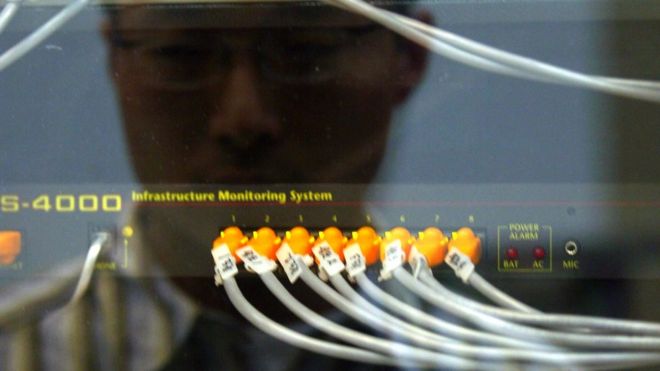AI is not new, so why suddenly does it matter?
Source: Rory Cellan-Jones
 Here come the Intelligent Machines.
Here come the Intelligent Machines.
This week on the BBC you may get the impression that the robots have taken over. Every day, under the banner Intelligent Machines, we will bring you stories on online, TV, radio about advances in artificial intelligence and robotics and what they could mean for us all.
We will ask whether smarter robots and more advanced algorithms will take over all sorts of tasks that we thought were the preserve of humans, posing a threat to employment. We will explore the ethical concerns about artificial intelligence, from the fear that computers will come to dominate humans to the question of who is to blame when a self-driving car hits a pedestrian.
We will examine the cultural impact of AI, asking whether a robot could paint a decent picture or compose a symphony, and we will also emphasise all those areas where this technology is making our lives better.
Why now? Well at the end of last year Prof Stephen Hawking told the BBC that full artificial intelligence could spell the end for mankind. "Humans, who are limited by slow biological evolution," he warned, "couldn't compete, and would be superseded."
That gloomy view started a public debate. Roboticists and computer scientists who specialise in the AI field rushed to reassure us that the "singularity", the moment when machines surpass humans, is so far off that it is still the stuff of science fiction.
But while we may not face imminent extinction at the hands of robot overlords, there does appear to be a consensus that the pace at which the machines are advancing has accelerated. Two forces are driving that - the exponential rise in computer processing power as predicted by Moore's Law and the new era of big data.
Jobs on the line
Vast amounts of information collected from countless sensors are being fed into ever more powerful computers that are learning to do extraordinary things. Live translation from one language to another, and the automated examination of X-rays by computers that can offer more reliable diagnoses than a radiologist are just two examples.
And so, on Monday, we will focus on a concrete issue - will your job be taken by a robot? Our interactive online tool will allow you to enter your job and then see how likely it is to disappear as a result of automation. It will make use of data from Oxford University research that shows the proportion of UK jobs that could be taken by those intelligent machines over the next two decades.
That might sound a depressing picture, but the good news is that the research also indicates that advancing technology will create more jobs than it destroys. And it is worth striking a note of caution about just how clever the machines are.
Anyone who has watched robots' hopeless attempts at playing football, or eaten one of the recipes created by IBM's Watson computer will know that there are many areas where humans are still way out in the lead.
Michael Osborne, the Oxford professor in machine learning behind our jobs research, told me that creativity, social intelligence and manual dexterity were the three characteristics that protected jobs from automation.
The machines are getting ever more intelligent, but they still show few signs of learning to be human.
| }
|